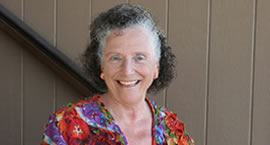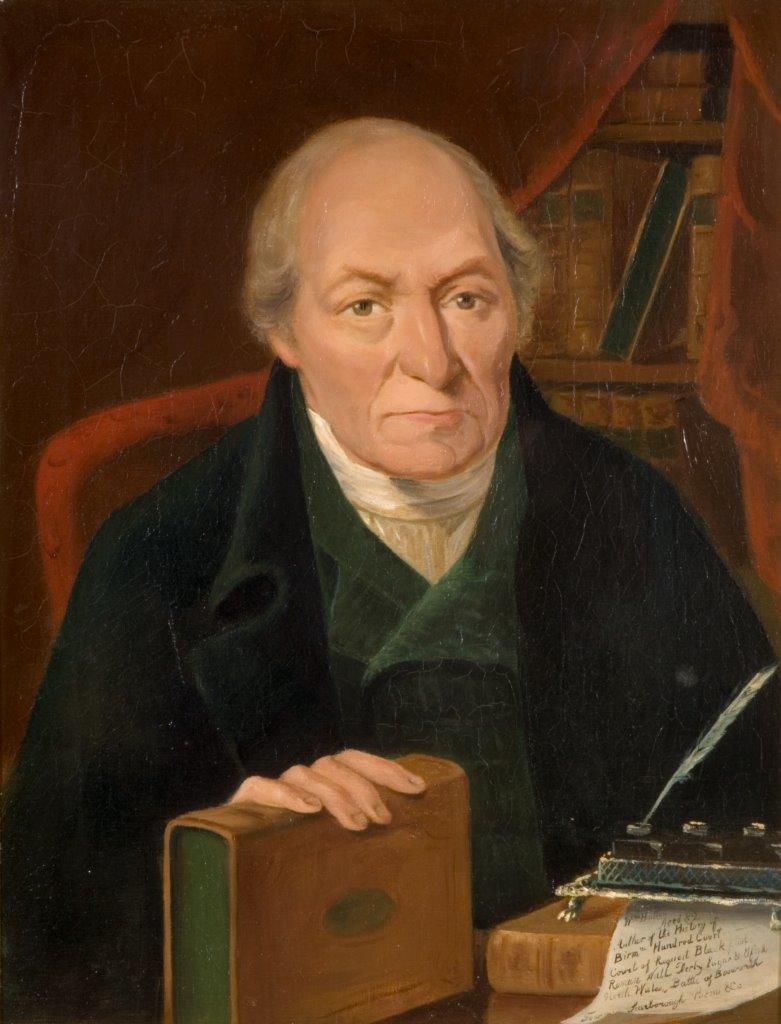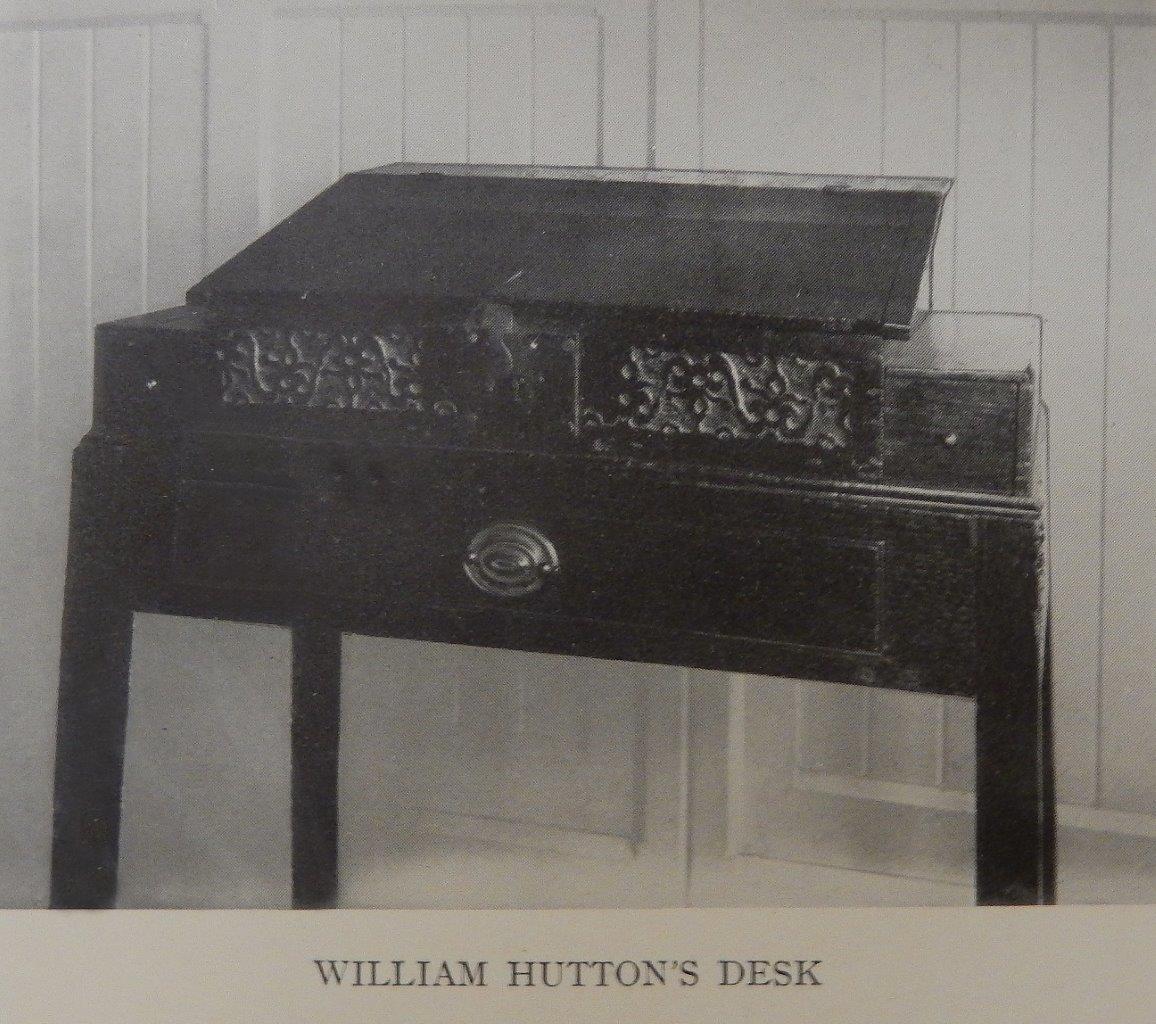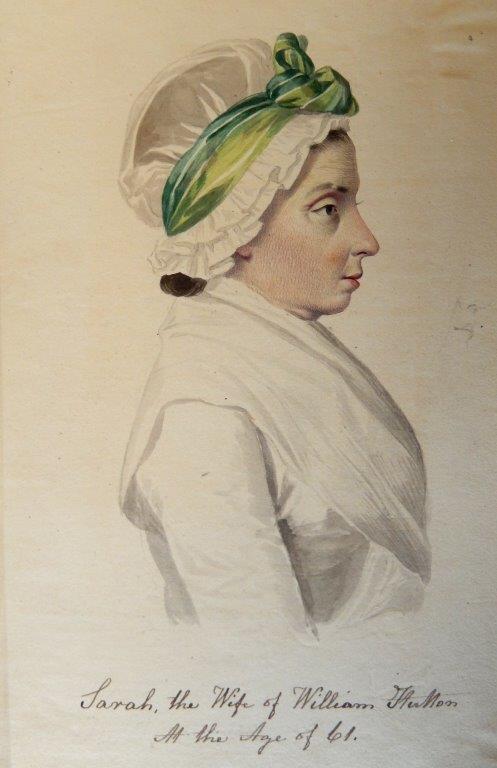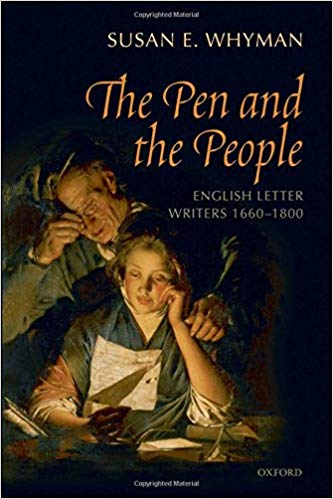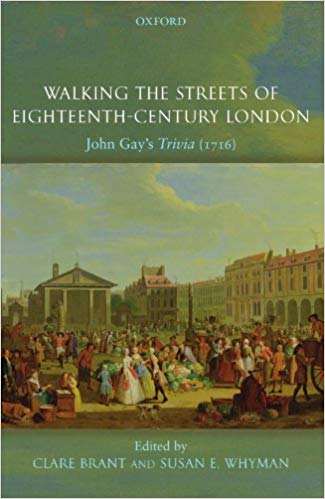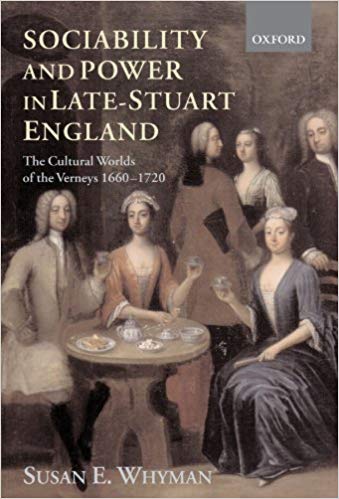ARTICLES
Articles by Susan E. Whyman
- Susan Whyman, John Baskerville, William Hutton and their Social Networks, in Caroline Archer-Parré and Malcolm Dick (eds),
John Baskerville: Art and Industry in the Enlightenment (Liverpool: Liverpool University Press, 2017), 87–112
- Whyman, Susan. 'The pleasure of writing is inconceivable', : William Hutton (1723-1815) as an Author.' Authorship 4.1 (2015).
Web: http://www.authorship.ugent.be
- Susan Whyman ‘William Hutton--Master of Words’, West Midlands History
, 1:3, Winter 2013, 8-11
- A Passion for the Post, History Today, December, 2009, 33-39
For 400 years the delivery of letters has been integral to British life. As Royal Mail confronts an uncertain future, Susan Whyman charts the Post Office’s development and discovers, through the correspondence of ordinary people, just how much letter writing meant to them.
- Letter Writing and the Rise of the Novel: The Epistolary Literacy of Jane Johnson and Samuel Richardson, Huntington Library Quarterly, 70:4, (2007), 577-606
In his widely known study of the novel, first published in 1957, Ian Watt linked the rise of the genre to the emergence of a middling-sort reading public. This new audience lacked formal education
- The Correspondence of Esther Masham and John Locke: A Study in Epistolary Silences, Huntington Library Quarterly, 66:3-4 (2004), 275-305
In 1722, Esther Masham, a 47-year-old Essex spinster, was copying letters into a book. On the first page she inscribed the title: 'Letters from Relations & Friends to E Masham, 1722 Book 1...
- Advice to Letter-Writers: Evidence from Four Generations of Evelyns, in John Evelyn and His Milieu, eds., Frances Harris and Michael Hunter (London: British Library, 2003), 255-66
Let us observe the ten-year-old son of John Evelyn as he writes a letter in 1665. There is no letter-writing manual at hand, just a pen made from the third left feather of a goose and a pot filled...
- Gentle Companions: Single Women and their Letters in Late Stuart England, in James Daybell, ed., Women's Letter Writing in England (Houndmills, Palgrave, 2001), 177-193
The seventeenth-century women whom we know as letter-writers were usually wives, daughters, or widows of wealthy men. This is not surprising, for elite women...
- ”Paper Visits”: The Post-Restoration Letter As Seen Through the Verney Archive, in Rebecca Earle, ed., Epistolary Selves: Letters and Letter Writers 1600-1945, (Aldershot: Ashgate Press, 1999), 15-36
The Verneys were an upper-gentry, Buckinghamshire family with a passionate interest in letters. The family amassed one of the largest continuous...
- Land and Trade Revisited: The Case of John Verney, London Merchant and Baronet, 1660-1720, London Journal, 22:1 (1997), 16-32
In 1695, an unknown observer wrote: 'The interest[s] of trade and land are the same, for the mutation frequently happens; the moneyed man today is a landed man tomorrow, and the landed man today becomes...
- Oxford Dictionary of National Biography: articles on members of the Verney family, Edmund Verney (1590-1642), Ralph Verney (1613-1696) and John Verney (1640-1717).
- Is the Handwritten Letter A Thing of the Past?, The Independent (London) Feb 2000
Book Reviews by Susan E. Whyman
- Sarah Pearsall, Atlantic Families: Lives and Letters in the Later Eighteenth Century, (Oxford: Oxford University Press, 2008). Institute for Historical Research, Reviews in History, January 21, 2010,
- Kevin Sharpe and Steven Zwicker, eds., Reading, Society and Politics in Early Modern England. (Cambridge: Cambridge University Press. 2003). ‘Hide and Seek: The Search for the Elusive Early-Modern Reader’, Journal of British Studies, 44 (2005), 831-3
- Peter Borsay, The Image of Georgian Bath , (Oxford: Oxford University Press, 2000), Published for H-Albion@h-net.msu.edu, January, 2001, ‘Towns, Heritage, and History’.
- Thomas O Beebe, Epistolary Fiction in Europe 1500-1850, (Cambridge: Cambridge University Press, 1999). Penn State Comparative Literature Studies 38:4 (2001).
- Molly McClain, Beaufort: The Duke and his Duchess 1657-1715, (New Haven and London: Yale University Press, 2001). Parliamentary History, 21:2 (2002), 269-99.
- Anne Kugler, Errant Plagiary: The Life and Writing of Lady Sarah Cowper, 1644-1720, (Stanford, California: Stanford University Press, 2002), ‘A Life of Wedded Misery’, Published for H-Albion h-net.msu.edu, June, 2003
